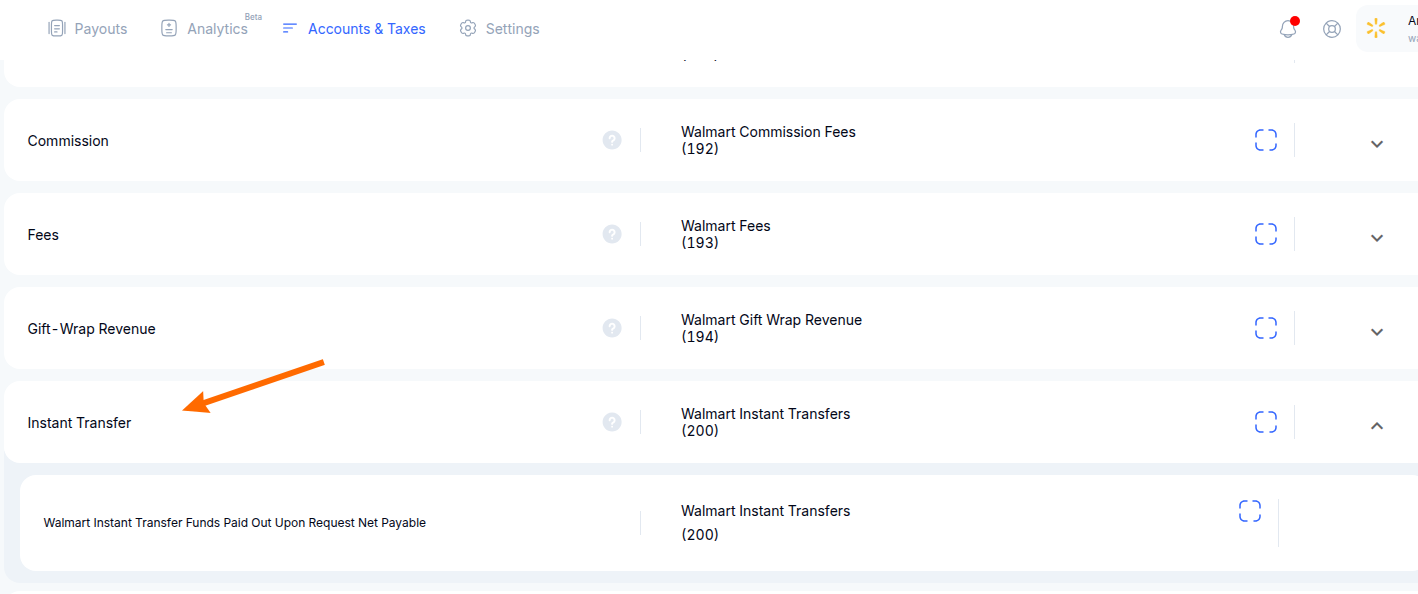If you choose to take an Instant Transfer (early withdrawal) from Walmart, the amount of that withdrawal is included within your Taxomate settlement entry for the relevant period.
For example, you might see a transaction line in your Taxomate settlement summary labeled:
“Walmart Instant Transfer Funds Paid Out Upon Request Net Payable” with an invoice amount of -$3,500.00 USD. The account name could be something like “Walmart Instant Transfers.”

When these Instant Transfer funds actually land in your bank account, they won’t automatically match to a dedicated entry from Taxomate. This is because Walmart typically includes these early withdrawal amounts as a line item within the same settlement that Taxomate processes — rather than issuing a completely separate settlement report for them.
In some cases, you may want to treat Instant Transfers as movements in and out of a Walmart Instant Transfer account, rather than directly matching to the settlement entry.
Manual Allocation Steps:
In your accounting software, locate your “Walmart Instant Transfer” account.
When an Instant Transfer deposit appears in your bank feed, manually allocate it to this account.
Example Scenario:
Taxomate’s settlement entry shows an Instant Transfer of -$3,500 within the Walmart Instant Transfer line.
Walmart separately deposits +$3,500 into your bank account (which you manually allocated to the Walmart Instant Transfer account).
Why this works:
The -$3,500 in the settlement entry reduces your Walmart Instant Transfer balance, while the +$3,500 deposit increases it. These two transactions net to zero in the Walmart Instant Transfer account, keeping your books balanced without affecting sales, refunds, or fees, which are recorded as part of the next regular payout.